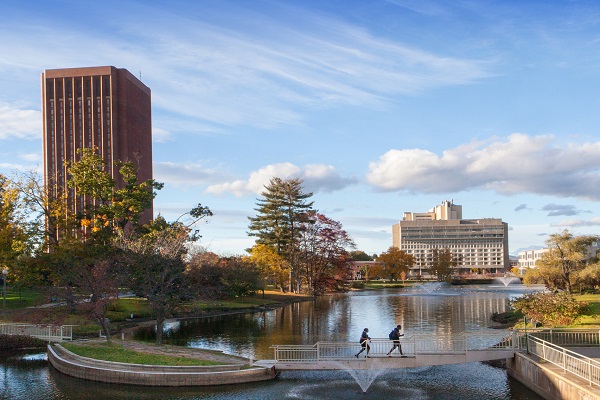University of Massachusetts Amherst: Stockbridge Contributes To First Healthy Soils Action Plan For Massachusetts
2023 marks the release of the state’s first Healthy Soils Action Plan (HSAP), a comprehensive approach to reducing impact from climate change and restoring ecosystems.
Faculty from Stockbridge, and other parts of the university, contributed their expertise to the development of this novel policy document.
Funded by the Executive Office of Energy and Environmental Affairs (EOEEA), the 120-page HSAP represents “the first time that the value of the soil has been highlighted and explained,” says Massachusetts Secretary of State Bethany Card, “and a menu of achievable action steps outlined, from which options can be selected for improving our soil health – the foundation for all our ecosystems and life in our forests, farms, wetlands, and green spaces near us.”
A key strength of the HSAP is its holistic approach to land management. It is the first such plan in the nation to focus on all land types — farms, forests, wetlands, lawns and developed land.
The 18-month process to produce the plan started with a 40-member work group of representatives from federal and state programs, plus other knowledgeable stakeholders. Ideas were vetted by scientific advisors and subject matter experts from across relevant fields including conservation groups, land planners, developers, turf professionals and soil scientists.
Stockbridge professor of sustainable agriculture Lisa Depiano was part of the working group. She was invited to participate in recognition of her leadership with the UMass Carbon Farming Initiative at the Agricultural Learning Center, where her demonstration and research site trains Stockbridge students in climate-smart farming techniques including silvopasture, alleycropping, and no-till agriculture.
“This report highlights the importance, relevance, and need for this work,” says Depiano, “and it recognizes the cutting edge education and training that students receive at Stockbridge, which will propel them to be leaders in the field.”
Ashley Keiser, assistant professor of soil ecology at Stockbridge, was also a consultant on the project, working first with the Regenerative Design Group and then as a member of the working group. Keiser, invited to the project because of her experience working with soil carbon across natural and managed systems, provided expertise on how to measure and account for soil health and soil carbon in both forested and agricultural areas of Massachusetts.
“Being invited to participate demonstrates the value of our research program,” says Keiser, “contributing to policy that improves soil health and helps to mitigate climate change.”
UMass Amherst was able to provide broad interdisciplinary expertise to the project. Subject matter expertise was contributed by Clem Clay, director of the UMass Extension Agriculture program housed under the university’s Center for Agriculture, Food and the Environment (CAFÉ), as well as additional UMass faculty.

